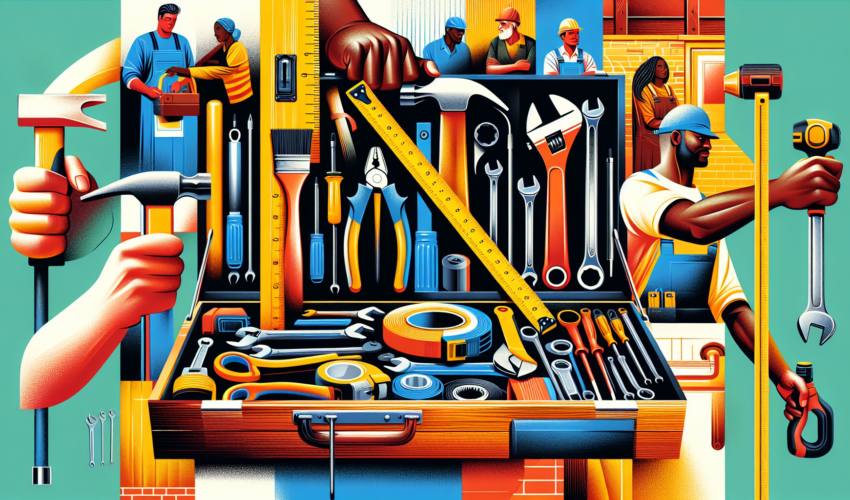Introduction
A handyman is a versatile worker capable of performing a wide array of tasks, from simple repair jobs around the house to more complex projects. Whether it’s fixing a leaky faucet, painting a room, or assembling furniture, a handyman’s skill set is broad and diverse. Essential to a handyman’s success are not only the skills they possess but also the tools they wield. This article explores the fundamental skills and tools every handyman should have to tackle various tasks efficiently and safely.
Essential Skills for Handymen
Before diving into the toolbox, let’s look at the must-have skills for any handyman:
1. Carpentry
Carpentry skills allow a handyman to repair or construct furniture, install cabinets, and perform structural repairs. Basic knowledge of how to measure, cut, and assemble wood is crucial.
2. Plumbing
A common call for handymen involves plumbing repairs. Understanding how to unclog pipes, fix leaks, and install fixtures can save homeowners from water damage and costly repairs.
3. Electrical Work
While major electrical work should be left to licensed professionals, handymen should feel comfortable replacing light fixtures, updating outlets, and performing simple wiring tasks.
4. Painting and Drywall Repair
Painting a room or fixing holes in drywall are frequent tasks. Knowing techniques for a smooth finish or how to seamlessly patch drywall can drastically improve a room’s appearance.
5. Basic Mechanics
Knowledge of basic mechanics is useful for fixing or maintaining machinery and appliances, ranging from lawn mowers to washing machines.
6. Problem-Solving
Above all, a good handyman must possess strong problem-solving skills. The ability to assess a situation, identify the problem, and devise an efficient solution is what distinguishes a great handyman.
Must-Have Tools for Handymen
Equipping oneself with the right tools is just as essential as having the skills. Here is a list of the basic tools every handyman should own:
1. Hammer
A versatile tool for driving nails, fitting parts, and breaking objects apart. A claw hammer also allows for nail removal.
2. Screwdrivers
A set of screwdrivers of various sizes and types (flathead and Phillips) is crucial for numerous tasks, from tightening hinges to assembling furniture.
3. Adjustable Wrench
An adjustable wrench is indispensable for plumbing tasks and any job that involves nuts and bolts.
4. Pliers
A set of pliers, including needle-nose and slip-joint pliers, provides the grip needed for bending, turning, and cutting wire.
5. Tape Measure
Accuracy is key in handyman work, making a reliable tape measure essential for measuring spaces for furniture, distances for installations, and materials for repairs.
6. Utility Knife
A sharp utility knife is handy for cutting through various materials, including cardboard, drywall, and vinyl.
7. Power Drill
A power drill not only saves time but also provides the power needed for drilling holes and driving screws into various materials.
8. Ladder
Many tasks, from painting to changing light fixtures, require a sturdy ladder to safely reach higher areas.
9. Safety Gear
Personal protective equipment, such as safety glasses, gloves, and ear protection, is vital to prevent injuries during work.
Conclusion
Becoming a skilled handyman involves a combination of technical skills, problem-solving abilities, and the right set of tools. By mastering essential skills and equipping themselves with a fundamental toolkit, handymen can tackle a plethora of tasks around the home, offering invaluable services and ensuring safety and efficiency in their work. Remember, the journey of a handyman is one of continuous learning and adaptation, as new techniques and tools constantly emerge.

